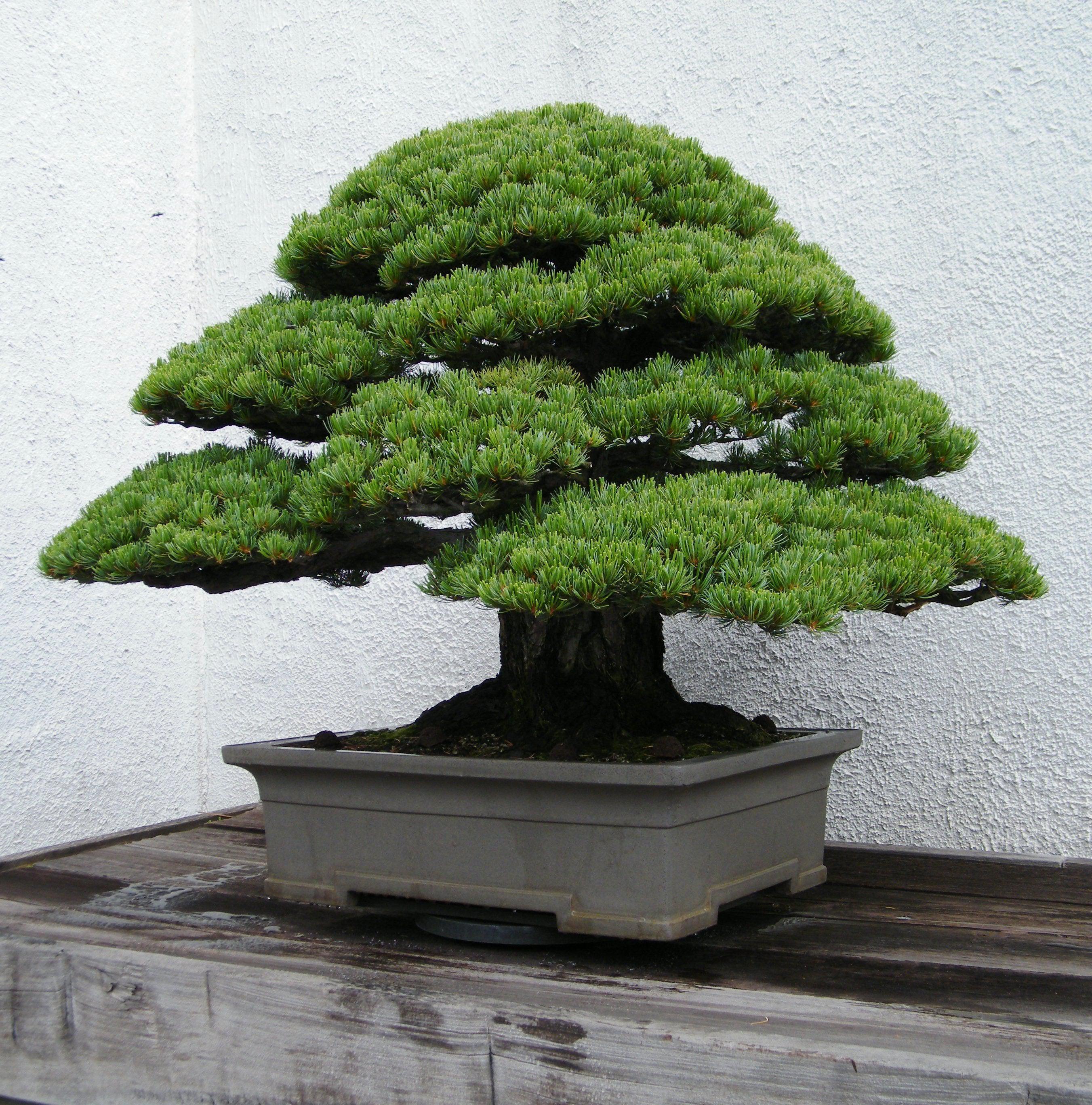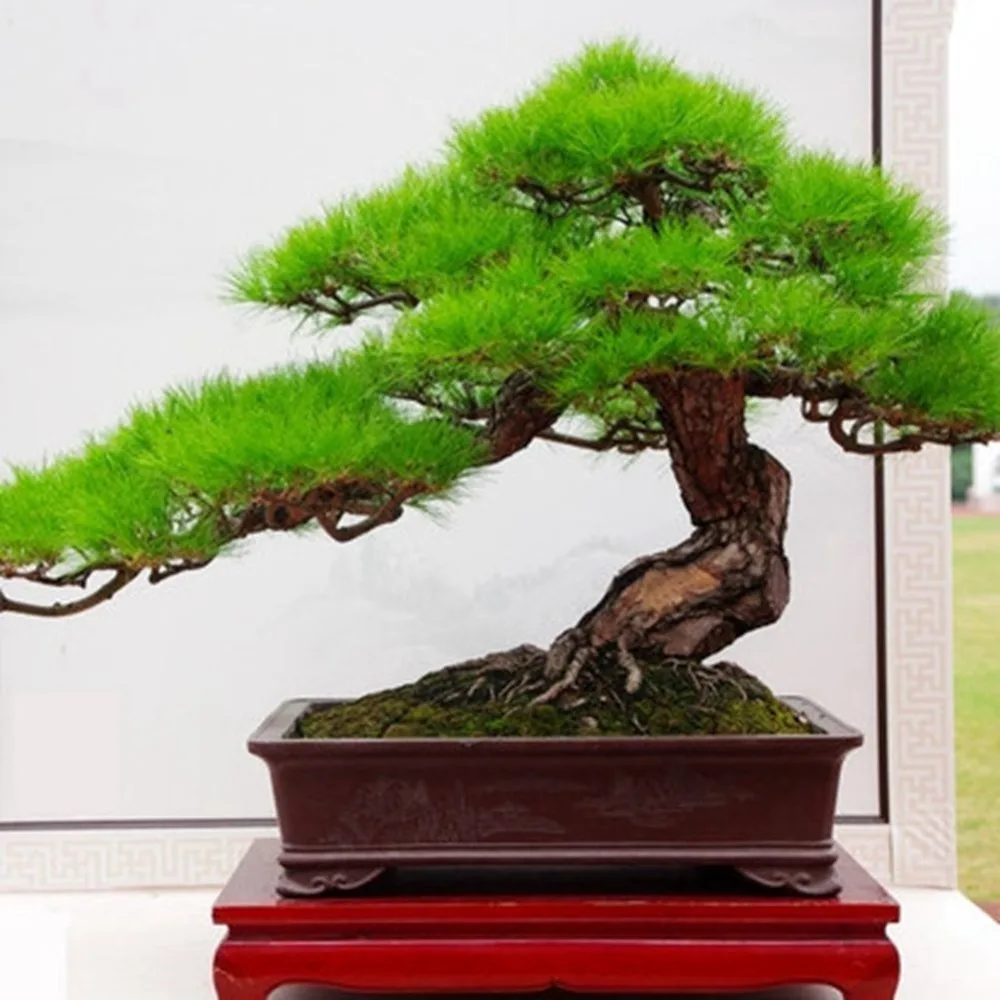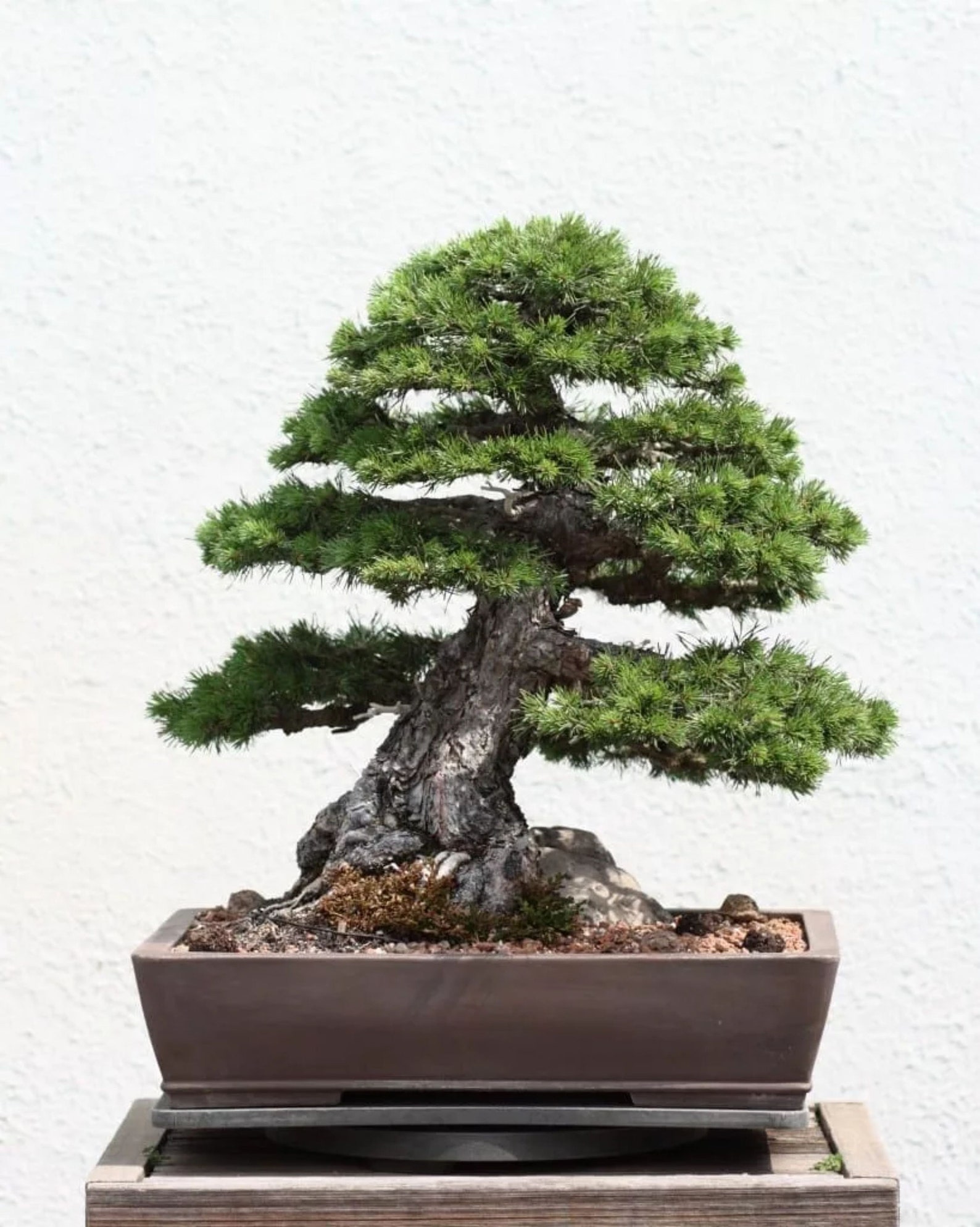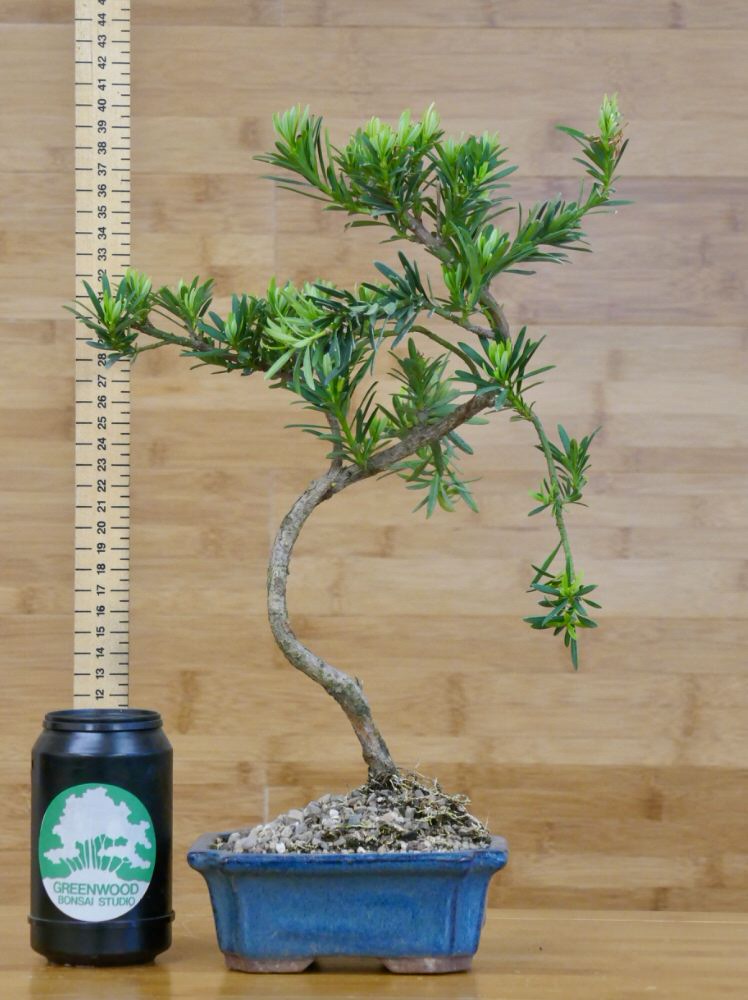
How To Grow Japanese White Pine Bonsai Trees Grow A Bonsai Tree Pine bonsai, Bonsai forest
A Norfolk Island Pine bonsai can be kept indoors year-round, but it does require certain conditions for proper growth and development. It thrives in bright, indirect light, so placing it near a window with filtered sunlight is ideal. Additionally, maintaining a consistent temperature between 60-70°F (15-21°C) is important for its health..

Bonsai Japan Japanese white pine Pine bonsai, Artificial garden plants, Bonsai forest
Pinus parviflora bonsai are coniferous evergreen resinous plants of the family Pinaceae and the genus Pinus. This bonsai tree is also known under the common names Japanese white pine, Ulleungdo white pine, Five-needle pine, Goyo matsu and Hime komatsu.

5 Incredibly Beautiful Pine Bonsai Trees [With Photos] Love My Bonsai
Rocky Mountain pine bonsai is a hardy, slow-growing pine, which is part of why it's a popular choice for bonsai. This species can tolerate drought as well as extreme weather conditions. Although as a group pine species are more challenging bonsai, they are very popular among bonsai enthusiasts. However, they aren't the best choice for beginners.

Buddhist Pine Bonsai (Chinese Yew) Plants and Trees Online
Bonsai is the ancient Japanese art of training and pruning a tree that is growing in a small pot and therefore has constrained growth. Indoor bonsai trees make popular and unusual gifts for house plant growers looking for a challenge. There's a wide range to choose from, including a selection of beginner species that require far less maintenance.

20pcs / Japanese black pine seeds, indoor bonsai tree seedsin Bonsai from Home & Garden on
Bonsai tree care Placement Watering Fertilizing Repotting Soil Pot selection Go to "Bonsai care" Bonsai styling Pruning Wiring Defoliation Deadwood Surface roots Trunk Go to "Bonsai styling" Tree cultivation Buying Bonsai Nursery stock Collecting trees From cuttings From seed Go to "Tree cultivation" General Tools Books eBooks Calendar FAQ

Bonsai tree Japanese white pine HighQuality Nature Stock Photos Creative Market
Aleppo pine bonsai are commonly advised as indoor bonsai, but I would not recommend growing them inside. Although they come from a hot climate, they still experience a change in seasons over winter which is a necessary part of their growth cycle. This cannot be replicated indoors, and you will struggle to grow a tree inside over the long term..

Mugo Pine bonsai by Vance Wood. Bonsai Tree Price, Buy Bonsai Tree, Pine Bonsai, Bonsai Tree
Indoor bonsai plants are a wonderful way to bring a touch of nature into your home or office. These miniature trees offer many benefits, such as improving air quality and reducing stress. With proper care and attention, indoor bonsai plants can thrive for years, adding beauty and serenity to your space.

Pine Bonsai Indoor bonsai tree, Bonsai art, Indoor bonsai
It is about 5 years old and it was purchased in a Bonsai store for around $50 US. We use a thick wire to bend the trunk, and stick one end of the wire into the root mass as anchor. Next, we wire the main branches of the tree. We try to select pairs of branches that are more or less the same thickness, and wire these with one piece of wire.

Japanese White Pine Bonsai Plant seed silver pine California Etsy
How to Grow a Bonsai Tree Indoors Home Gardening House Plants How to Grow a Bonsai Tree Indoors—and Actually Keep It Alive Patience is key to cultivating an awe-inspiring bonsai. By Laura Fenton Updated on May 9, 2023 Fact checked by Haley Mades In This Article Definition Selection Care Tips Repotting Shaping
:max_bytes(150000):strip_icc()/Bonsai-Pine-Tree_GettyImages-607466734-b94442f3a47c4046aae4997031ec0421.jpg)
How to Grow and Care for Pine Bonsai
1) Provide Ample Lights For Your Indoor Bonsai Trees: There are some tropical trees that can grow indoors, but most need plenty of light. When you grow a tropical bonsai tree indoors you have to give them ample lighting. South or east-facing window is best for growing tropical bonsai tree species.

Pine Bonsai auf dem Display Black pine bonsai, Bonsai trees for sale, Bonsai forest
For a quick summary of the basics to care for your Norfolk Island Pine Bonsai, see the care sheet below. Recommended soil. Use a standard mix with pebbles as a base layer for drainage. Watering. Every two days in spring and summer, or until the top layer of soil is dry. Reduce in autumn and winter.
/growing-pine-bonsai-5085311-hero-1949cdd024584519b85caa408e26d580.jpg)
How to Grow and Care for Pine Bonsai
August 15, 2021 Care Guide For Pine Bonsai [2021] Table of Contents Care Guide For Pine Bonsai [2021] Types of pine bonsai trees and pine bonsai care Pinus aristata bonsai Pinus aristata bonsai tree care Japan Black Pine bonsai Japanese Black Pine tree care Chinese Yellow Pine Tree bonsai Chinese Yellow Pine tree care Chinese White Pine

World Bonsai convention (Pine bonsai) Pine bonsai, Indoor bonsai tree, Indoor bonsai
The Japanese black pine is a native of Japan and is one of the most popular species used for bonsai. It is a hardy tree that can withstand harsh growing conditions and is well-suited to both indoor and outdoor growing. This species of pine has a distinctive appearance, with long, dark green needles and a rough, bark-like texture.

Japanese White Pine Bonsai Tree(pinus parviflora)
All bonsai are grown outdoors. Indoor bonsai enthusiasts were looked at with disdain. Indoor bonsai was made by the Western worlds. ALL plants that grow successfully indoors, in the West are from the tropics, where they grow in the sunshine with heat, humidity, wind, rain, and all of the weather patterns.

Literati Black Pine Indoor bonsai tree, Pine bonsai, Bonsai tree care
September 29, 2022 by Yulios Ponderosa pine bonsai (Pinus ponderosa) is a unique and spectacular tree that makes an excellent bonsai subject. Native to the western United States, these stately evergreens are prized for their picturesque, pyramidal form, dense foliage, and attractive reddish-brown bark.

Buddhist Pine Bonsai (Podocarpus) Indoor Bonsai Tree in Glazed Pot Greenwood Bonsai Studio
1. Light The main problem with keeping a tropical Bonsai tree indoors is that the intensity of light is much lower than outdoors. Trees won't die immediately if they don't get enough light, but growth will decrease and weaken the plant over time.